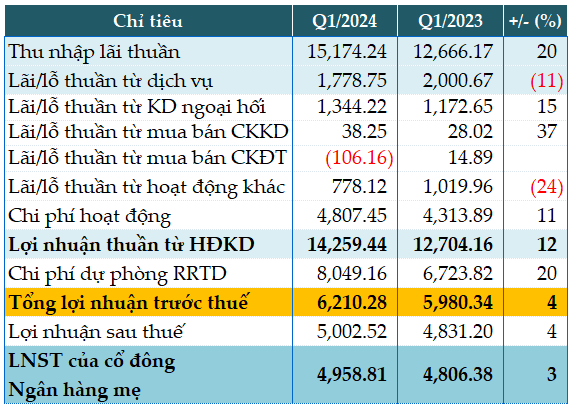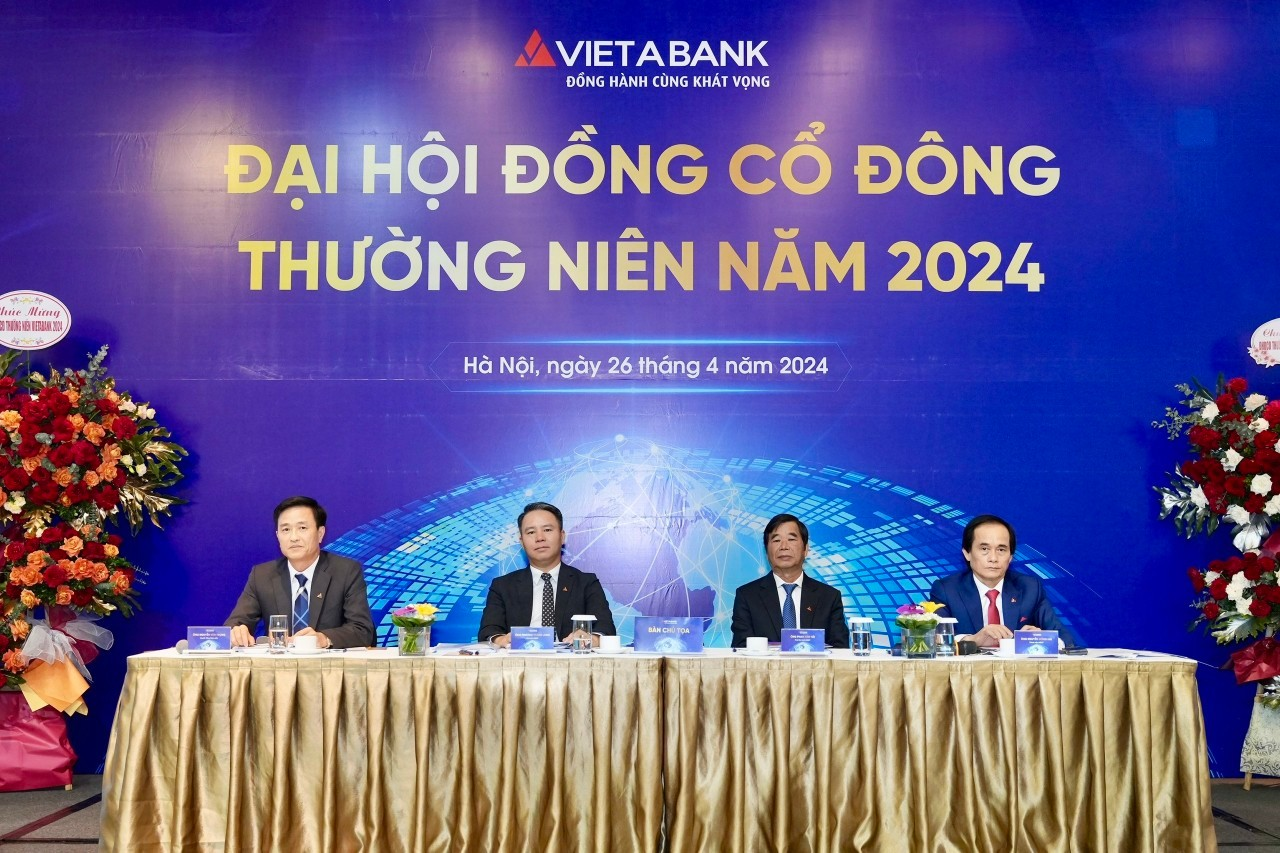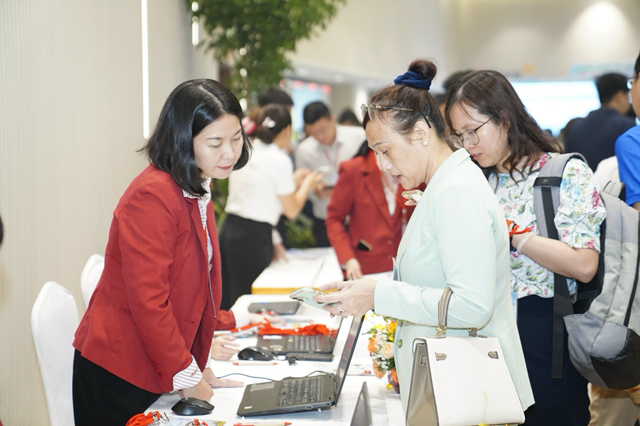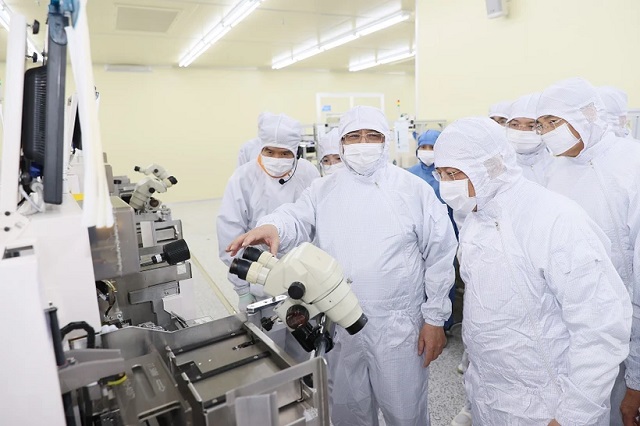
Prime Minister Pham Minh Chinh visits the semiconductor production line of Hana Micro Vina Co., Ltd. (Photo: Duong Giang/TTXVN)
|
The Vietnamese government has been and will continue to make efforts to create the best conditions to welcome investors in the semiconductor industry.
In the near future, Minister of Planning and Investment Nguyen Chi Dung affirmed that Vietnam will become a reliable partner and an important link in the global semiconductor value chain.
To understand the opportunities, challenges, and solutions needed to develop this high-tech industry, Minister Nguyen Chi Dung shared his insights on this matter with reporters.
– The Ministry of Planning and Investment has pioneered working with leading global technology companies in innovation, calling for investment, and cooperation with Vietnam. Could you share the achievements and plans in the coming years?
Minister Nguyen Chi Dung: Recently, many major technology companies worldwide have collaborated with the National Innovation Center to implement various innovation programs and activities, support digital transformation and develop a skilled workforce, such as Google, Meta, Siemens, Hitachi, etc.
In 2023, through contacts, exchanges at all levels, the Ministry of Planning and Investment proactively proposed cooperation and called for investment in innovation with leading global companies.
As a result, many international companies such as John Cockerill, Synopsys, Cadence… have signed cooperation agreements with the National Innovation Center, demonstrating that Vietnam is becoming increasingly attractive to global technology corporations.
Especially, after high-level foreign affairs and high-level economic diplomacy achievements of historic significance, many large international companies have strengthened cooperation and development in many economic sectors, especially in emerging industries such as semiconductors, chips, and high-quality human resource training.
Based on the achieved cooperation results, the Ministry of Planning and Investment is directing the National Innovation Center to focus on implementing agreed cooperation activities with current partners and proactively seeking and promoting collaboration with leading global partners in 8 key sectors to establish operations at the center, especially at the Hoa Lac facility.
Thereby, contributing to the strong growth relying more on new driving forces like digital economy, science and technology, innovation, new industries such as chips, semiconductors, renewable energy, hydrogen, etc.
– The semiconductor industry offers significant opportunities. In the Minister’s opinion, what challenges exist, and what are the necessary solutions to develop this high-tech industry?
Minister Nguyen Chi Dung: In the context of the semiconductor value chain gradually shifting to Southeast Asian countries, Vietnam has all the necessary conditions and factors to develop the semiconductor industry, such as a stable political system, favorable geographical location, attractive investment incentive policies, abundant technical and technological human resources, and increasingly developing digital infrastructure.
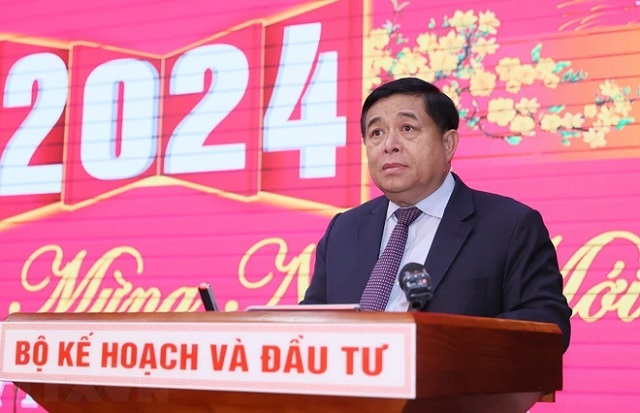
Minister of Planning and Investment Nguyen Chi Dung. (Photo: Duong Giang/TTXVN)
|
The Vietnamese government is highly committed to pursuing and developing the semiconductor industry, and has been attracting an increasing number of major corporations in this industry.
In reality, many large electronics and semiconductor companies are present and planning to expand their investments in Vietnam, such as Intel, Samsung, Synopsys, Qualcomm, Infineon, Amkor, etc. This demonstrates the crucial role and growing importance of Vietnam in the global semiconductor supply chain.
From 2001 to 2021, the global semiconductor industry has grown 13% annually, reaching $600 billion as of 2021. The semiconductor industry is expected to continue to grow strongly, reaching $1 trillion by 2030 according to a study by Boston Consulting Group (BCG).
The world’s largest economies, including the US, China, EU, South Korea, and Japan, have announced subsidy plans for their semiconductor manufacturing industry, creating competitiveness in the global technology industry.
This industry has opened up many opportunities for all countries, including Vietnam, specifically: With the development of new technologies such as artificial intelligence, autonomous vehicles, Internet of Things (IoT), etc., there is a high demand for semiconductor components.
Chip production can also create significant export opportunities, especially when many countries are seeking safe and independent semiconductor supply sources.
However, the semiconductor industry poses challenges for businesses and governments, including Vietnam, such as high investment costs. Chip manufacturing requires significant investment and specialized infrastructure and complex production lines.
In practice, building a chip fabrication plant can cost up to $50 billion. International competition is also a challenge as the semiconductor industry is facing high competition, especially from countries like China, the US, and Europe.
These countries/regions have announced plans for their chip sector investment ranging from $50 to $150 billion. Along with that, there are technology challenges and increasing complexity of semiconductor technology, requiring large investment in research and development to maintain competitiveness.
Especially, the demand for high-quality human resources is significant, and the actual human resources in Vietnam are still at the early stage, with insufficient skills and qualifications to meet the needs of businesses.
The semiconductor industry has been present in Vietnam since the early 1980s, but we have not had a national development strategy. Therefore, this industry in our country is still in its infancy, with the main participation being foreign companies.
To develop the semiconductor industry in Vietnam to meet its existing advantages, the Ministry of Planning and Investment is focusing on the following key points to lay the foundation for this high-tech industry: improving the quality of human resources; building mechanisms and policies to attract and utilize foreign investment and establish research and development centers (R&D); thereby creating a favorable environment for Vietnamese researchers and businesses to access new technologies.
In addition, encouraging integrated circuit research and development projects, application and commercialization of research projects, building a network of research linkages between institutes and universities need close coordination between relevant parties, including the government, state agencies, private enterprises, and research institutes, universities in order to develop and implement projects.
Particularly, it is necessary to ensure that the future output of semiconductor human resources is exposed to labor demand and supports business development through support programs for engineers working both locally and internationally, supporting startups, building an innovative ecosystem, supporting study exchanges, and prioritizing the use of locally produced products.
Finally, building a strong financial mechanism to meet project funding needs based on budget sources from the state, socialization, international sponsorship, legal revenue sources, and reasonable allocation of funds for training programs, scholarships, and training organizations.
– What are the prospects and potential of the semiconductor industry in Vietnam in the near future? What has the government and the Ministry of Planning and Investment done to promote cooperation in this industry?
Minister Nguyen Chi Dung: In the context of the semiconductor value chain gradually shifting to Southeast Asian countries, Vietnam has all the necessary conditions and factors to develop the semiconductor industry, such as a stable political system, favorable geographical location, attractive investment incentive policies, abundant technical and technological human resources, and increasingly developing digital infrastructure.
The Vietnamese government is highly committed to pursuing and developing the semiconductor industry and has been attracting an increasing number of major corporations in this industry.
The commitment and support of the U.S. President for Vietnam’s participation in the global high-tech value chain and the semiconductor industry have opened up significant opportunities for Vietnam to join the international network of high-value production.
In reality, many large electronics and semiconductor companies are present and planning to expand their investments in Vietnam, such as Intel, Samsung, Synopsys, Qualcomm, Infineon, Amkor, etc. This demonstrates the crucial role and growing importance of Vietnam in the global semiconductor supply chain.
The Vietnamese government has implemented appropriate and important policies to enhance attracting investment in this field. Vietnam is developing a national strategy for the semiconductor industry until 2023 and a human resource development plan for the semiconductor industry, aiming to train and develop 50,000 human resources by 2030.
Recently, the National Assembly has issued a resolution assigning the government to develop a decree for establishing an investment support fund for the high-tech industry, including the semiconductor industry, expected to be issued by mid-2024.
The Vietnamese government has approved Power Plan VIII and established the State Steering Committee for key energy projects with the goal of providing stable and sustainable power supply for investment projects, especially high-tech and semiconductor industry projects, promoting land clearance, preparing clean land for industrial parks, economic zones, and high-tech zones, as well as accelerating the progress of important transportation projects connecting ports, airports to create favorable conditions and enhance the competitiveness of semiconductor projects.
The Vietnamese government has been, is, and will continue to make efforts to create the best conditions to welcome investors in the semiconductor industry. In the near future, we believe that Vietnam will become a reliable partner and an important link in the global semiconductor value chain.
I welcome investors to come, seek their investment opportunities, and contribute to the development of Vietnam.
– Thank you, Minister.
Thuy Hien





















